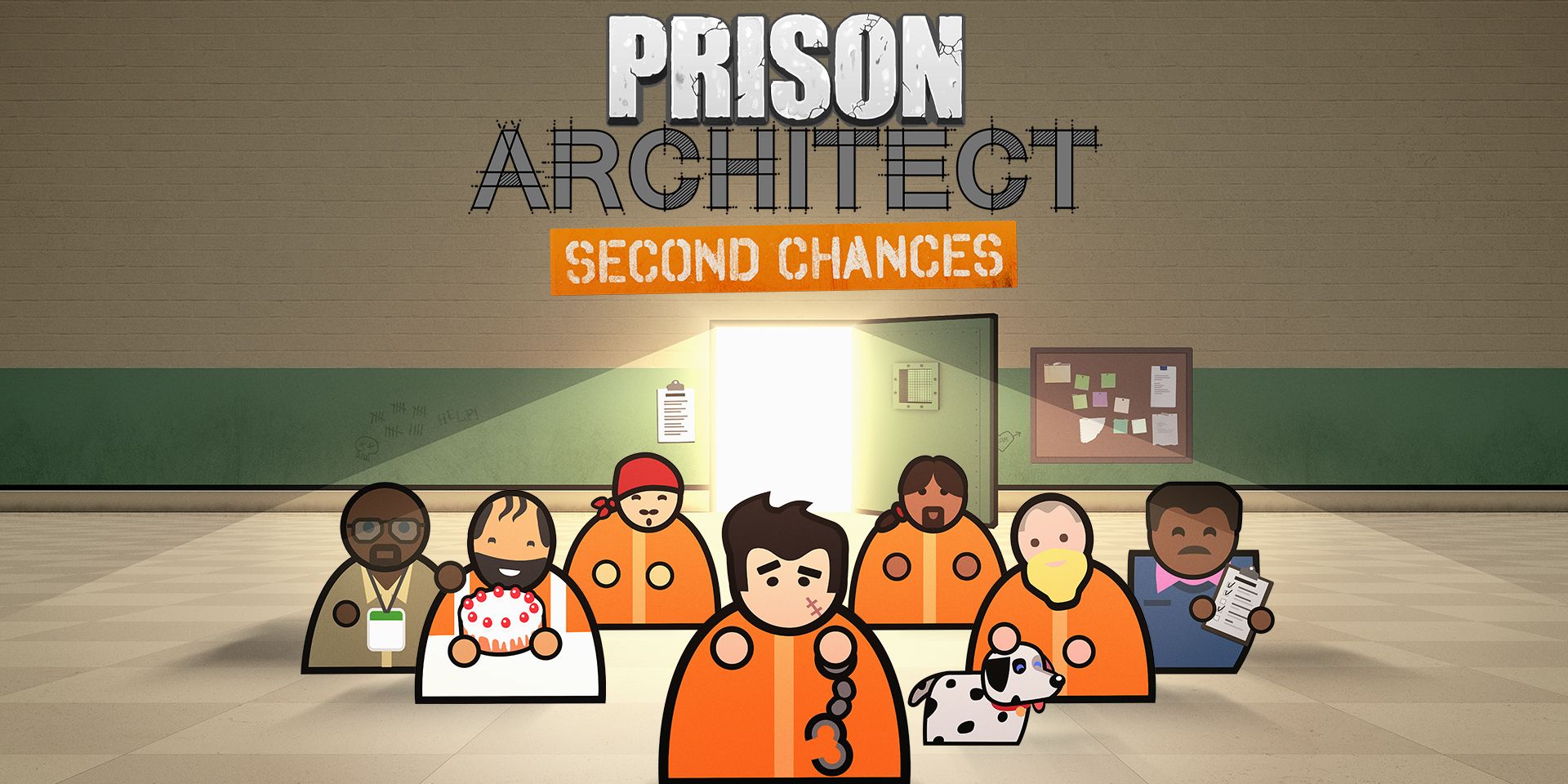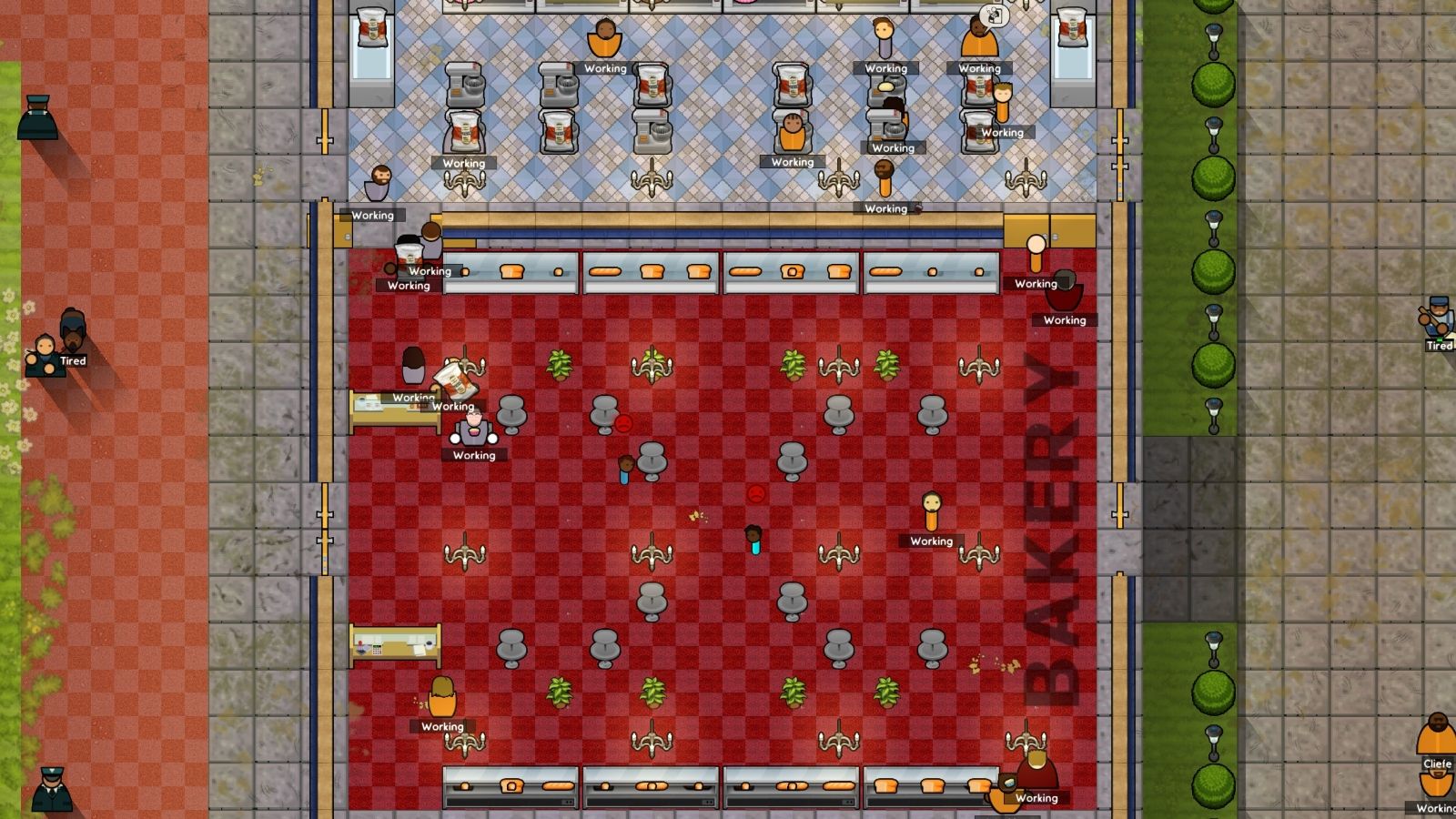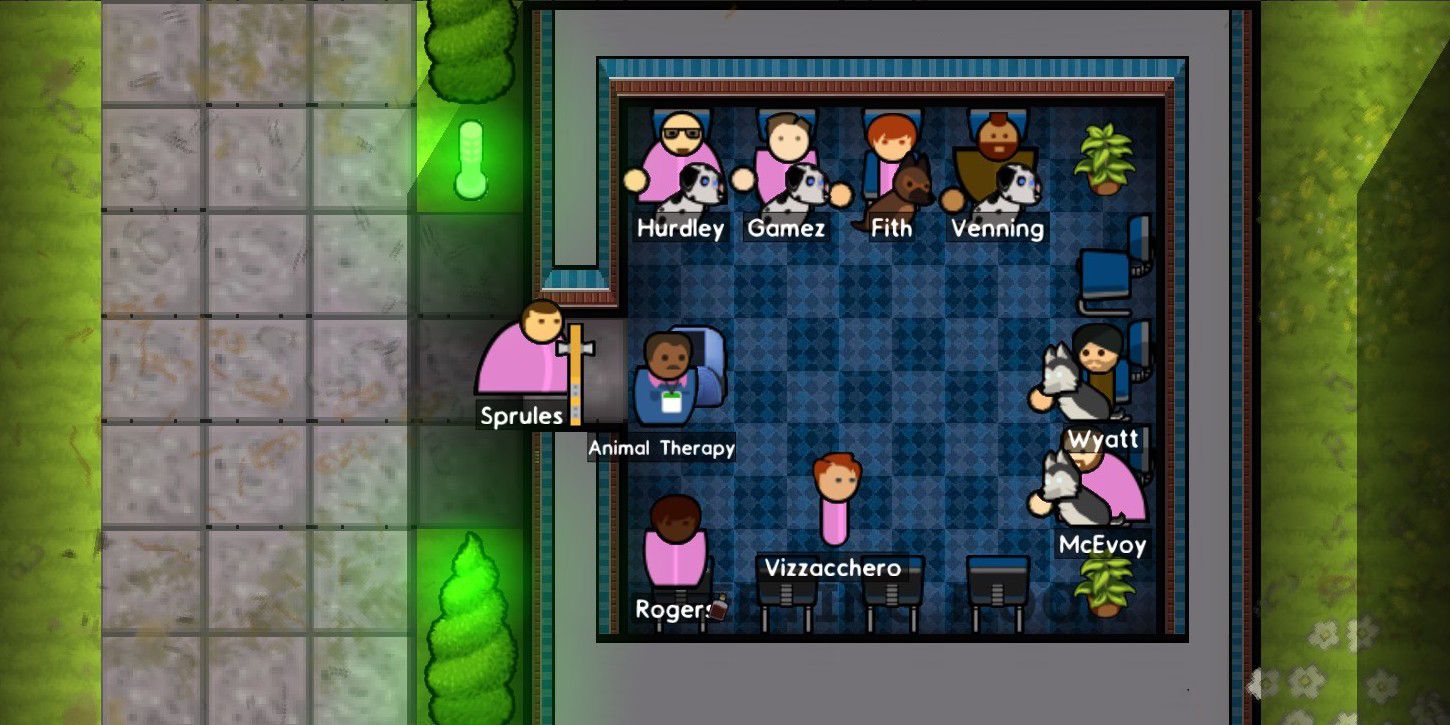
Prison Architect officially released in 2015 as a simply-illustrated game that lets the player build and manage their own prison. It's simulation style was similar to from classics of the genre like The Sims or RollerCoaster Tycoon. What sets the game apart is not its gameplay, but rather its subject matter. Prisons are naturally complex ecosystems, filled with prisoners, staff and visiting civilians. These groups must navigate the different systems of the penitentiary, from the canteen to the laundry to the library, each of which has its own supply chain and needs, connecting them to other systems and the people who inhabit them.
But, like all tycoon games, these complex systems end up boiling down to columns of income and expenses, which the player min-maxes to achieve a high overall value for their prison. That optimization leads to some dark questions. Is it worth building a death row section if it generates a high amount of profit? Is it worth researching the ability to confine prisoners to cells smaller than what is considered humane? These questions are made more complex by Prison Architect's setting and the real-world implications surround its gameplay. With a game like this, it often feels difficult to play the game effectively while also treating inmates like human beings worthy of respect and dignity. Thankfully, the game's latest expansion, Second Chances, is making that easier.

Second Chances is the game's fourth major piece of paid DLC, and it focuses on implementing helping inmates turn their lives around while incarcerated, helping them reenter society after they're released from prison. This stands in stark contrast to the game's darker themes and options, which can often lead to increasing amounts of surveillance and militarization. It introduces several reform programs that can be run out of the newly-introduced meeting room, including animal therapy and counseling from former prisoners. These programs can help remove a prisoner's negative traits, which otherwise make them more prone to violence or self-destructive behavior. It also implements a new mechanic in the form of "work experience," which can reduce a prisoner's chance of reoffending once they're released into larger society.
There are two new rooms introduced to help boost work experience -- the Bakery and the Restaurant. Each of these rooms employs inmates from within the prison, who then serve food to visiting civilians. The Restaurant lets players choose the quality of food served, with higher quality food taking more time and labor to prepare. Diners who enjoy the food served to them will be more likely to increase business via word of mouth, but could be annoyed by poor service if there aren't enough prisoners assigned to prepare the higher-quality food. The Bakery lacks these more complex mechanics, though this could be a plus for players who prefer a higher floor and lower ceiling for profits.

Both work experience and counseling programs can help reduce a prisoner's reoffending rate once they're released, but the game does not rely solely on players' altruism. Successfully reformed prisoners contribute a small bonus, and reoffending prisoners result in a hefty fine. Those reoffending prisoners can also return to the player's penitentiary with new traits and worse attitudes. This combination of positive and negative incentives provide a mechanical reason to care about Second Chances' mechanics, even for players who aren't thinking about the morality of the real-world criminal justice system while playing.
Second Chances is only a small part of a much larger game, already complex, game. Prison Architect on its own is fully capable of satisfying players for days on end, and Second Chances expands that with mechanics tailored towards the mid-to-late game. It feels more like added texture than a full overhaul, but that's okay. Each piece of DLC for Prison Architect slowly expands and improves the game alongside its regular free updates, meaning that Second Chances is absolutely worth buying for those who already love the game.
Prison Architect is currently developed by Double Eleven and published by Paradox Interactive. It's available for PC, Mac, PS4, Xbox One and Nintendo Switch. Second Chances releases on Nintendo Switch on June 29 and is currently available on all other platforms.
0 Comments